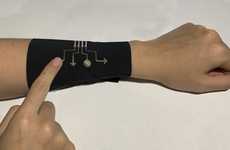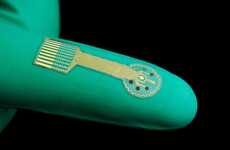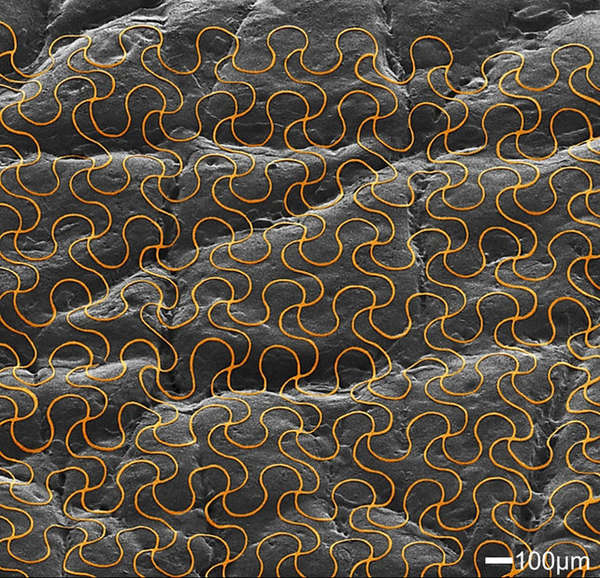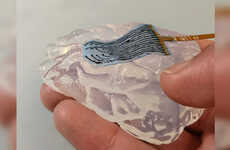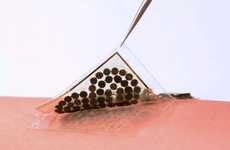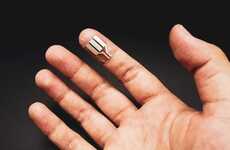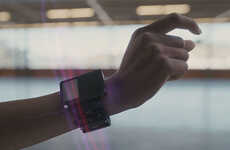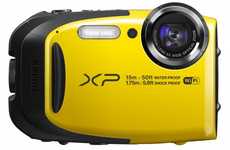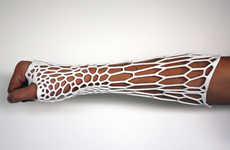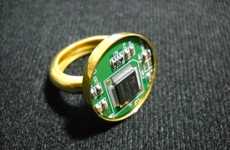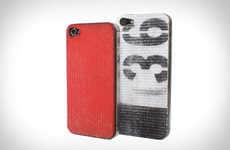
John Rogers' Skin Circuit Technology is the Rub-On Tattoo of the Future
Brandon Bastaldo — April 1, 2013 — Tech
References: mc10inc & fastcodesign
For those who thought that a skin circuit implant was only a crazy idea of science fiction or a horrible and distant dystopian future, materials scientist John Rogers' recently developed skin stamped circuit technology is destined to change your opinion on this cutting edge matter.
Conducting research for the University of Illinois, Rogers has developed his flexible circuitry system to actually adhere onto our skin, similarl to a rub on tattoo. Containing capacitors, inductive coils, transistors and many more computer components, this skin circuit system will work to better integrate our bodies with the technology we use on a daily basis.
These skin circuit stamps are flexible with the natural movements of our bodies and last about two weeks until they dissolve from the surface of our skin. Rogers sees his remarkable skin circuit technology appearing in sports, tech and eventually surgical tools of the future.
Conducting research for the University of Illinois, Rogers has developed his flexible circuitry system to actually adhere onto our skin, similarl to a rub on tattoo. Containing capacitors, inductive coils, transistors and many more computer components, this skin circuit system will work to better integrate our bodies with the technology we use on a daily basis.
These skin circuit stamps are flexible with the natural movements of our bodies and last about two weeks until they dissolve from the surface of our skin. Rogers sees his remarkable skin circuit technology appearing in sports, tech and eventually surgical tools of the future.
Trend Themes
1. Flexible Skin Circuitry - Skin circuit technology that adheres like a rub-on tattoo is revolutionizing the way technology interacts with the human body.
2. Body-tech Integration - The integration of technology with the human body through skin circuitry has the potential to transform industries that rely on wearable or implantable technology.
3. Transient Technology - The development of skin circuitry that dissolves after two weeks offers a glimpse into the future of transient technology, which opens up new opportunities for packaging and environmental sustainability.
Industry Implications
1. Sports Equipment - Flexible skin circuitry has the potential to revolutionize the design of sports equipment, creating intelligent wearables that can track a user's performance and offer real-time feedback.
2. Medical Devices - The integration of skin circuitry into surgical tools has the potential to improve accuracy, increase control, and even reduce the size of surgical tools, opening up new possibilities for minimally invasive surgeries.
3. Consumer Electronics - Skin circuit technology opens up new possibilities for creating wearable devices that are almost invisible, and could even replace the bulkier smartwatches or fitness trackers on the market today.
2.9
Score
Popularity
Activity
Freshness


